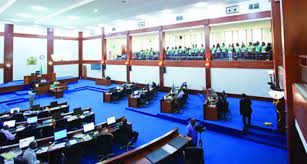
The President of the Green Building Council of Nigeria (GBCN), Danjuma Waniko, has identified cement production and the building sector as significant contributors to Nigeria’s greenhouse gas emissions.
Speaking at a GBCN workshop in Abuja on Thursday, Waniko called for targeted actions to address these issues, which he described as central to the country’s climate challenges.
“Cement production alone accounts for 23% of Nigeria’s national greenhouse gas emissions, a figure much higher than the global average of 11%, largely because our economy is not heavily industrialized,” Waniko explained. He pointed out that cement is a key material in building construction, and as construction increases, so does cement use, leading to higher emissions.
Waniko also highlighted that buildings are responsible for approximately 40% of global energy-related emissions. The energy-intensive processes and materials used in the design, construction, and operation of buildings contribute significantly to greenhouse gas emissions. “Buildings contribute substantially to emissions, not only through materials like cement but also due to the energy consumed during their operation,” he said.
He emphasized the link between buildings and emissions, noting that the energy used to power systems like air conditioners often comes from fossil fuels such as petroleum and natural gas, which release significant carbon dioxide into the atmosphere.
Waniko also discussed the cascading effect of emissions from buildings on other sectors. While recognizing the contributions of sectors like transportation and aviation to emissions, he stressed that the building sector’s impact is unmatched.
To reduce emissions from buildings and construction, Waniko suggested practical solutions, including the design of energy-efficient cooling systems, the use of natural ventilation, and the adoption of alternative roofing materials. He also emphasized the importance of reducing reliance on carbon-intensive materials like cement.
In conclusion, Waniko highlighted the GBCN’s focus on decarbonization and resilience, aiming for sustainable practices at both the national and subnational levels.





